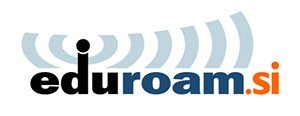About us
In the Dolenjska region our Vocational College is recognized as a leading educational institution in the field of technical disciplines. By joining our programs, people get theoretical and practical knowledge. Our graduates obtain the necessary skills needed by companies. We are always looking for new challenges.
HIGHER EDUCATION QUALIFICATION
Designation of the granted document: Diploma of undergraduate education studies
Designation of the granted document: Diploma of undergraduate education studies
Language of instruction: Slovenian
INFORMATION ON THE TYPE AND LEVEL OF THE QUALIFICATION
Level of qualification: Higher undergraduate (higher vocational education)
Official length of the study programme: 2 years
Credit points: 120
Level of qualification: Higher undergraduate (higher vocational education)
Official length of the study programme: 2 years
Credit points: 120
Our school is part of the Educational centre of Novo mesto (centre of secondary education).
Our programmes:
- Mechanical engineering - full-time, part-time (adult education),
- Information science - full-time, part-time (adult education),
- Electronics - full-time, part-time (adult education),
- Environmental protection and communal services - full-time, part-time (adult education),
- Logistic engineering - part-time (adult education),
- Wood technology - full-time, part-time (adult education),
- Cosmetics - full-time, part-time (adult education),
- Mechatronics - full-time, part-time (adult education).
Our school is known for its quality study programmes which from the 2007/2008 study year are offered in accordance with the Bologna Declaration.
COOPERATION WITH INDUSTRY
Direct contact between our staff and colleagues in industry are vital. Students meet problems and needs concerning their future working place. Enterprises are satisfied of employing staff with good qualification and experiences. The steady cooperation between our school and the enterprises in our region allows the development of new programmes according to the trends and the market needs. Our teaching staff consists mainly of lecturers coming from enterprises, having a practical-oriented experience which they apply when teaching technical subjects. Co-operation in EU projects: local enterprises cooperates in our EU projects, allowing research and a their point of view in the project itself. Formal co-operative agreements The purpose of such formal agreements is to establish a good basis for co-operation, which can cover research, programmes, exchange of personnel, student projects, education, further education or other conditions of interest to the company. The school has produced a standard form of contractual agreement and is working on setting up more co-operative agreements.
QUALITY ASSURANCE
Many of the monitoring techniques set out above serve as effective ways for our school to control the quality of its work. Our vocational school assures the quality of its programmes through a variety of means:
Direct contact between our staff and colleagues in industry are vital. Students meet problems and needs concerning their future working place. Enterprises are satisfied of employing staff with good qualification and experiences. The steady cooperation between our school and the enterprises in our region allows the development of new programmes according to the trends and the market needs. Our teaching staff consists mainly of lecturers coming from enterprises, having a practical-oriented experience which they apply when teaching technical subjects. Co-operation in EU projects: local enterprises cooperates in our EU projects, allowing research and a their point of view in the project itself. Formal co-operative agreements The purpose of such formal agreements is to establish a good basis for co-operation, which can cover research, programmes, exchange of personnel, student projects, education, further education or other conditions of interest to the company. The school has produced a standard form of contractual agreement and is working on setting up more co-operative agreements.
QUALITY ASSURANCE
Many of the monitoring techniques set out above serve as effective ways for our school to control the quality of its work. Our vocational school assures the quality of its programmes through a variety of means:
- close liaison with regional, national, international partners,
- monitoring of each training programme by staf,
- evaluation questionnaires completed by review teams and institutions,
- follow-up of issues arising from evaluations,
- specific technical equipment in the classrooms,
- qualitative lessons,
- real problems to solve in the seminar works and diploma’s works,
- project works.
